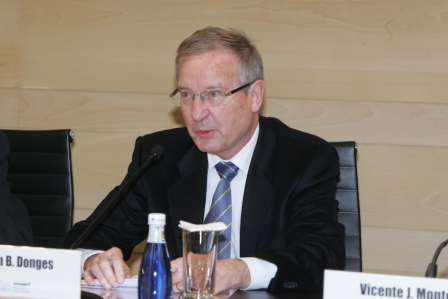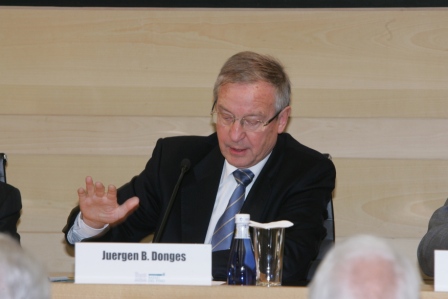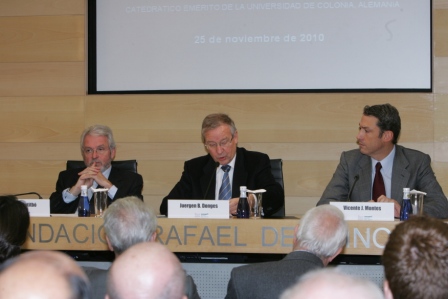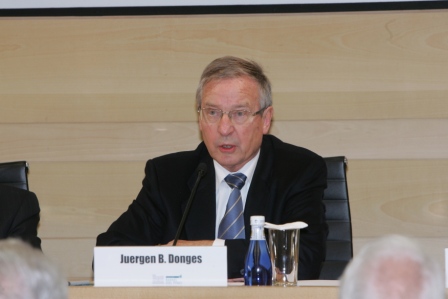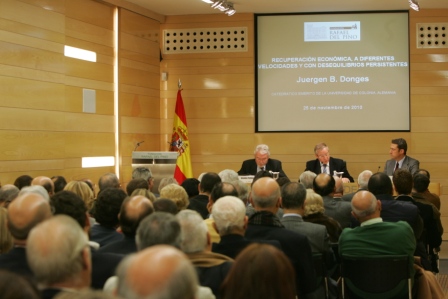The Rafael del Pino Foundation hosted the Keynote Lecture by Juergen B. Donges entitled "Economic recovery, at different speeds and with persistent imbalances" on 25 November 2010. Donges entitled "Economic recovery, at different speeds and with persistent imbalances" on 25 November 2010.
Juergen B. Donges said: "The sword of Damocles hanging over the eurozone is that a state insolvency would put banks in Germany and France in serious trouble, which could trigger further far-reaching financial turbulence in the whole area and beyond. No wonder that, as soon as the Irish crisis erupted, Deutsche Bank CEO Josef Ackermann urged the European Union to save, with all available means, any country in the area with solvency difficulties ('Europe deserves to pay any price'). This is an illustrative example of the problem of 'moral hazard': once a financial institution has acquired systemic relevance, the so-called European Financial Stabilisation Mechanism becomes a covert (but effective) protection mechanism for that institution, at the taxpayer's expense, regardless of any errors that may have been made in management due to the failure to assess the quality of the lender-country with the necessary rigour. This is not compatible with the 'principle of responsibility', which is fundamental to the proper functioning of the market economy. It is not acceptable for international banks to consider that profits are theirs, while losses belong to everyone.
Regarding German competitiveness and its effects, Juergen B. Donges argued that "Strong wage increases in Germany would relatively improve the price competitiveness of the other Eurozone economies vis-à-vis the German economy. Donges argued that "Strong wage increases in Germany would relatively improve the price competitiveness of the other Eurozone economies vis-à-vis the German economy; but at the same time both Germany and the Eurozone would lose competitiveness vis-à-vis the rest of the world. Germany alone will not save Europe. Only with a serious commitment to structural reforms by all European countries can the new 'Europe 2020' agenda achieve its goal, which is to make the European Union a dynamic economic area capable of competing with the Asian and American economies both in the markets for goods and services (via trade) and in attracting direct investment and skilled personnel from abroad (factor mobility).
